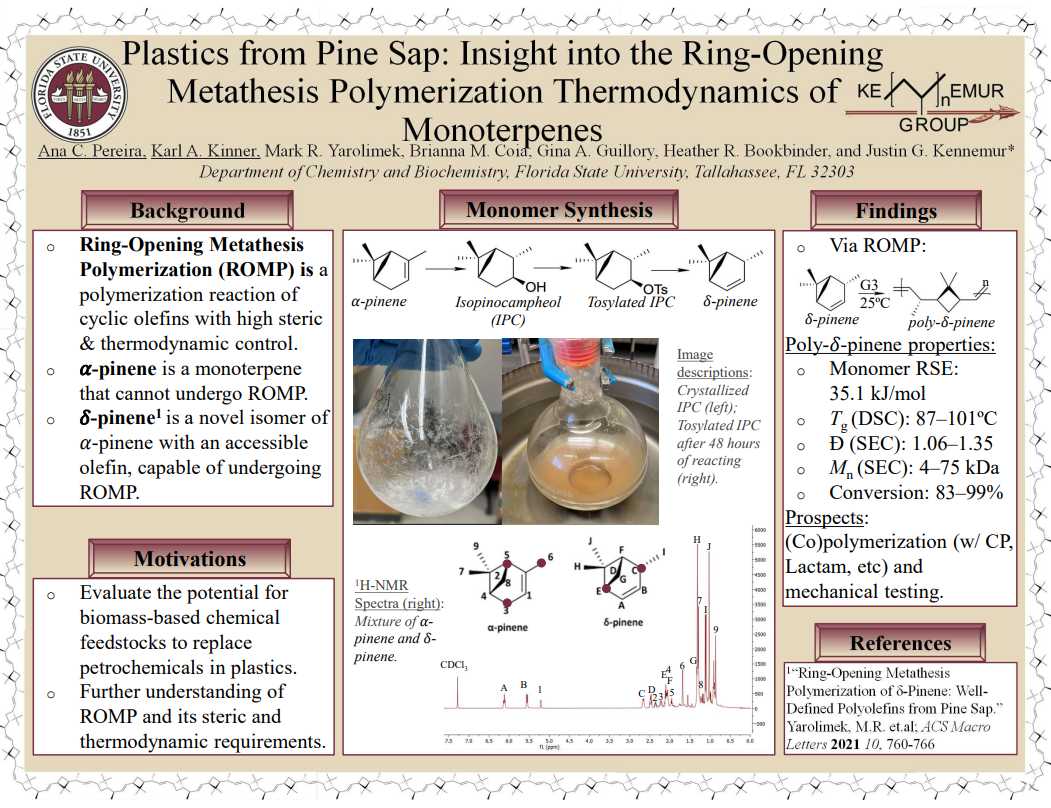Research Symposium
23rd annual Undergraduate Research Symposium, April 6, 2023
Karl Kinner Poster Session 3: 2:45 pm - 3:45 pm/ Poster #316

BIO
I am a senior undergraduate researcher in the Kennemur Lab where I work on polymer synthesis using naturally sourced monomer precursors. I enjoy playing and coaching volleyball in my spare time.
Plastics from Pine Sap: Insight into the Ring-Opening Metathesis Polymerization Thermodynamics of Monoterpenes
Authors: Karl Kinner, Justin KennemurStudent Major: Biochemistry
Mentor: Justin Kennemur
Mentor's Department: Chemistry and Biochemistry Mentor's College: Arts and Sciences Co-Presenters: Ana Pereira
Abstract
Monoterpenes are a class of organic molecules that comprise most of the volatile components within the sap of conifer trees. Due to their abundance and ability to be harvested non-destructively, value-added use for these renewable chemical feedstocks, such a precursor to new plastics, are being investigated as potential alternatives to petroleum–derived polymers. Many monoterpenes feature unsaturated cyclic or bicyclic structures, making them candidates for ring–opening metathesis polymerization (ROMP). α-Pinene is the most abundant monoterpene produced yet long-standing attempts to transform it into polymers via ROMP have proven unsuccessful. The Kennemur Group recently utilized a two-step synthetic modification of α-pinene to produce its isomer, δ-pinene, and discovered this transformation leads to successful ROMP with high fidelity. This presentation will discuss insight into the thermodynamic requirements that can optimize the success of this polymerization. In addition to experimentation, density functional theory (DFT) has been employed to further our understanding of both α-pinene and δ-pinene derivatives and how they behave under varying conditions during ROMP. Determining optimal conditions for the ROMP of these terpene monomers is highly crucial: they each have relatively low ring strain, complicating the thermodynamic favorability of the polymerization due to simultaneous loss of entropy. These findings allow for improved predictability of the ROMP reactivity of different cyclic olefins, furthering potential replacements over petrochemicals as the dominant feedstock in plastics manufacturing. Polymer synthesis and ROMP thermodynamics will be discussed in addition to some basic thermal and mechanical properties of the resulting plastics.
Keywords: ROMP, Pinene, Polymer, Chemistry, Plastic


